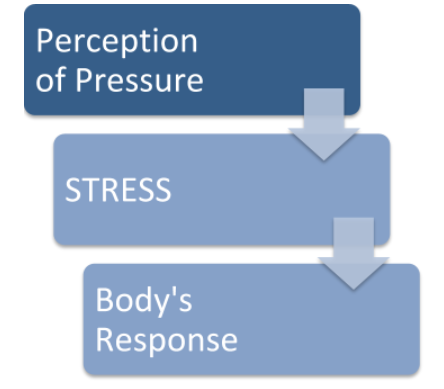Stress Management

Stress is a word that is familiar to almost everyone. We all complain about work related stress or stress related to studies etc. But, how to define Stress? Almost everyone knows how it feels like. We can explain stress as,“ a mental, emotional and physical response to a pressure or threat.”
Stress can be:-
- The stress that creates positive impact – Eustress
- The stress that creates negative impact – Distress
You might be thinking now is there a“stress creating positive impact”?? Yes. We can see this in detail.
Eustress:- The stress that creates positive impact. For example, winning a competition, success in work, marriage etc. These pressures also cause stress. Since the pressure is positive it creates only less impact on the individual.
Distress:- The stress that creates negative impact. For example, losing a competition, failure in work, divorce etc.
Similarly, we can classify stress based on the duration of the stress:-
Acute Stress:– In this, the body returns to the normal state within 90 minutes.
Chronic Stress:– In this, an emotional pressure that is suffered for a long period of time, on which the individual have little control or no control at all. Even though the stress hormones are released in acute stress, the amount released is low and duration of its action is for short-term. But in chronic stress, the long–term exposure to this hormones results in many complications like hypertension that may lead to heart disease, damaged body systems, suppression of immune system and decreased mental health.
WHAT HAPPENS WHEN YOU ARE STRESSED?
Here is a general diagrammatic representation of stress.

HOW DOES BODY RESPONDS?
The stress stimulates our body systems to create the response. The body systems involved are:-
- Nervous System
- Endocrine System
- Immune System
The major effects of stress occur at physical, mental and emotional levels. Some of them are:-
- Increase or decrease of appetite
- Headache
- Chest pain
- Increased blood pressure
- Depression
- Tiredness
- Frustration
- Irritability
- Increase in anger
- Insomnia
- Nervousness
- Irritable bowel
These are only some of the common and major effects. These may change depending on the individual.
Now let us see what Ayurveda says about stress:-
Ayurveda describes stress in the chapter where the mental disorders/problems are mentioned.
“Dhanakaanthaadi naashena………….
……………………………..vicheshtathe II “
(Ashtanga Hridaya: Uttara Sthana: Chapter-6: Verse-15-16)
It says that the loss of money, spouse etc. which can cause pain that is unbearable, for a long period of time, can cause mental problems.
By this the person becomes:-
- Pale
- Timid
- Faints
- Weeps without any reason
- Always talks about the lost
- Grief-stricken
- Nervous
- Insomnia
HOW CAN WE MANAGE STRESS?
Stress is getting common nowadays. Majority of the population suffer from chronic stress in one way or other. The condition gets worse when they do not know how to manage the situation. In Ayurveda, stress is managed through:-
- Consoling
- Supporting
- Practising Yoga
- Pacifying treatments like Sirodhara, Sirobasthi, Talam, Siroabhyanga etc.
- Internal medicines prescribed by the physician.
- Meditation
- Following the Ayurvedic Daily Regimens
- Panchakarma
Let us take a look on the external treatments mentioned above:-
Talam:- The application of medicated paste on the scalp for a specific period of time. The paste is chosen according to the condition of the patient.
Sirodhara:- In this procedure, medicated oils, decoctions etc. chosen after the careful examination of the individual, is poured continuously on head, for a specific period of time, in specific temperature and force.
Sirobasthi:- In this procedure, a well-like structure is made on head (over the scalp), in which the medicated oil, at specific temperature, is poured, and made to stand there for specific period of time.
Siroabhyanga:- In this the head is massaged with medicated oil.
Along with the above mentioned treatments Panchakarma is also done as per the condition of the patient.
These are general treatments for stress. An individual should consult a physician to analyse the condition and the treatment is selected based on the physician’s evaluation. If needed, internal medicines should taken as per physician’s advice.
Check out WellnessLoka’s offerings to manage stress – here

Leave a Reply
Want to join the discussion?Feel free to contribute!